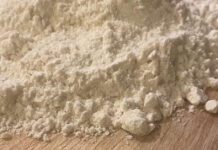The COVID-19 vaccines promise to restore a sense of normalcy. Who couldn’t use that? But they’ve also led to increased concerns. People face the nagging question: to vaccinate or not to vaccinate? The answer isn’t so cut and dry. Especially if you live with an autoimmune disease. For all the benefits of getting the vaccine, there are risks. The risk of the vaccine triggering a flare up. The risk of a bad reaction to the vaccine. Allergies pose a risk for me. Allergies to multiple medications and foods. Worsening allergies that have led to anaphylaxis. What if I had an allergic reaction to the vaccine? I didn’t know what to do.
Writing this post forced me to look for answers. It made me examine the risks of getting versus not getting the vaccine. This knowledge guided my decision. Read on to see what I learned, and what I decided.
First, I think you should know something. I’m not a doctor, nurse, scientist or clinician. I’m just a person living with an autoimmune disease looking for facts, like you. This post should not be taken as medical advice in any way. Always consult with your physician before making any medical decisions. COVID-19 information is constantly evolving. Please refer to the CDC for the most current information.
Table of Contents
Risks Associated With NOT Getting the COVID-19 Vaccine
I’ve participated in several health-related online forums. I’ve read comments from people with multiple autoimmune diseases or other illnesses. They’re afraid of the vaccine. Understandably so. I was too. While researching this topic I realized the scales in my mind were unbalanced. I hyper-focused on my fear of the vaccine. But what about COVID-19? Did I know enough about my risk to make an informed decision?
Are people with autoimmune disease at a higher risk of COVID-19?
Severe COVID-19 outcomes include hospitalization, complications and even death. Autoimmune diseases impacting the heart, lung, liver, or nervous system may increase your risk. The following diseases are known to impact these areas. This is not an exhaustive list.
- Lupus
- Multiple sclerosis (MS)
- Rheumatoid arthritis
- Cardiac sarcoidosis
- Autoimmune hepatitis,
- Guillain-Barre syndrome
- Idiopathic pulmonary fibrosis
COVID-19 & Autoimmune Disease: What We Know Now

Are people on immunosuppressants at higher risk of COVID-19?
Yes, according to the Center for Disease Control (CDC). Immunosuppressants are a type of medicine given to autoimmune disease patients. Autoimmune diseases cause the immune system to attack “self”. There are more than 80 types of autoimmune diseases. Lupus, MS, rheumatoid arthritis, Grave’s Disease and Chrohn’s are just a few. People with autoimmune diseases have an overactive immune system. Immunosuppressants work by “relaxing” the immune response. This prevents the immune system from attacking “self”. Historically people who take immunosuppressants are at increased risk for infection. In addition, infections may be more difficult to treat and take longer to resolve.
If You Are Immunocompromised, Protect Yourself From COVID-19
I’m currently taking Prednisone to treat my autoimmune disease and I’ve heard conflicting information. Will Prednisone increase or reduce the risk of a severe COVID-19 outcome?
Corticosteroids like prednisone and methylprednisolone suppress the immune system. For this reason they may increase the chance of a severe outcome. According to my physician, 10 mg of Prednisone or higher increases your risk. I’ve read articles that concur with this line of thinking.
However corticosteroids like Dexamethasone may be beneficial for some. Such is the case with hospitalized COVID-19 patients who’ve developed a systemic inflammatory response. These patients are at increased risk of multi-system organ dysfunction. When administered Dexamethasone, they had a lower mortality rate. More so than those who didn’t receive the corticosteroid.
Steroid Use Increases COVID-19 Hospitalization Risk For Patients With Rheumatic Diseases
Can I stop taking immunosuppressants to reduce my risk of COVID-19?
Do you really want to do that? Stopping your immunosuppressant increases your chances of a flare-up. The risk of a debilitating autoimmune flare-up is much higher than any increased risk from immunosuppressants. Therefore clinicians strongly advise staying the course with your immunosuppressants.
COVID-19 & Autoimmune Disease: What We Know Now
Risks Associated With the COVID-19 Vaccines
There are many questions concerning the safety of the COVID-19 vaccines. Being immunosuppressed brings a whole new level of anxiety. Fear of getting a new vaccine. Not knowing whether there are long-term side effects. Fear of worsening autoimmune disease flare ups. Here’s what people want to know.


Were the COVID-19 vaccines developed too quickly?
Typically vaccine development takes years. But we didn’t have the luxury of time with COVID-19. Several factors helped speed up the development of the COVID-19 vaccines.
Help from the Government
In April 2020 a new government program was created. Operation Warp Speed increased collaboration between the federal government and pharmaceutical industry. Nearly $10 billion dollars in federal funds also sped up the process.
Extensive Research
Scientists were better equipped with this pandemic. Extensive research had been done during prior pandemics. COVID-19, SARS (Severe Acute Respiratory Syndrome) and MERS ( Middle East Respiratory Syndrome) are all coronaviruses.
In addition, a global partnership had formed during the Ebola outbreak. Launched in 2017, the Coalition for Epidemic Preparedness Innovation (CEPI) set the stage for rapid vaccine development.
Rigorous guidelines were followed in spite of the rapid development. This includes 3 clinical trial phases. The goal of these clinical trials is to find the safest, most optimal dose. The vaccine is administered to an increasing population of healthy volunteers.
How Were Researchers Able to Develop COVID-19 Vaccines So Quickly
Here’s How It Was Possible to Develop COVID-19 Vaccine So Quickly
Will the COVID-19 vaccine make me sick? Is the COVID-19 vaccine safe?
You may have concerns about injecting a virus into your body. Especially while your immune system is compromised. This is a rational fear. Many wonder whether a live virus can overwhelm a weakened immune system. Can the COVID-19 vaccine give you COVID-19? According to the CDC, you can’t catch COVID-19 from the vaccines. The Moderna and Pfizer-BioNTech vaccines don’t contain live, weakened or inactivated forms of the virus. Therefore they are considered “safe” for immunocompromised individuals.
Symptoms Associated with the COVID-19 vaccine
Some people may experience symptoms after receiving the vaccine. This is an indication that the immune system is building immunity.
Symptoms can last 1-2 days and may include:
- fever
- chills
- tiredness
- muscle pain
- headache
- nausea
In addition you may feel pain at the injection sight. Pain relievers such as ibuprofen and acetaminophen can alleviate symptoms.
Understanding and Explaining mRNA COVID-19 Vaccines
Seven Vital Questions About COVID-19 Vaccines
Understanding How COVID-19 Vaccines Work
Myths and Facts About COVID-19 Vaccines
Can people who are immunosuppressed get the COVID-19 vaccine?
There isn’t much data available on the effects immunosuppressants have on the COVID-19 vaccine. Historically, immunosuppressants have reduced the effectiveness of other vaccines. This is the case with the flu, shingles and pneumonia vaccines. Clinicians can only assume the same to be true for the COVID-19 vaccine. Anthony Fauci, MD, the nation’s leading infectious disease expert, recommends getting the vaccine. Some immunity to COVID-19 is better than none at all. Especially given the fact that immunocompromised individuals are at increased risk of severe COVID-19 outcomes.
When Timing Matters
In certain situations, the timing of receiving the COVID-19 vaccine matters. The CDC and the American College of Rheumatology have made various recommendations including:
- Waiting at least 2 weeks after receiving the COVID-19 vaccine before initiating immunosuppressive therapy.
- Hold off on dosing with the self-injectable form of Abatacept. The recommended period is 1 week prior to getting the COVID-19 vaccine and 1 week after.
- Individuals with rheumatoid arthritis (RA) on methotrexate are advised to hold the dose following the COVID-19. This recommendation applies to those with controlled disease.
- Consideration should be given as to the timing of the last Rituximab injection
You should discuss these considerations with the physician treating your autoimmune disease.
Taking Immunosuppressants? Fauci Says Get the COVID-19 Vaccine
Will the COVID vaccine make my autoimmune disease flare up?
Ever since my autoimmune disease diagnosis, avoiding flare ups has become the bane of my existence. If you have an autoimmune disease, you probably can relate. We never know what might trigger a flare up. To say we’re a little guarded is an understatement.
Unfortunately, COVID-19 clinical trials didn’t include people with autoimmune diseases. So the vaccine’s impact on this subgroup of people is unknown. However, clinicians still recommend that people with autoimmune diseases get vaccinated. The benefits that the vaccine provides far outweigh the risks of having an autoimmune flare up.
ACR: Vaccinate patients with musculoskeletal, inflammatory, autoimmune disease for COVID-19
Can I still catch COVID if I’ve had the COVID vaccine?
It can take up to a few weeks to develop immunity after receiving the vaccine. If you contracted COVID-19 immediately before or after the vaccine, you can still get sick. For this reason it’s especially important to protect yourself by:
- Maintaining adequate social distancing.
- Wearing a face mask
- Avoiding crowds
- Washing hands for 20 seconds with soap and water if available. If not, using a hand sanitizer with at least 60% alcohol
- Following the CDC guidelines for traveling
- Avoiding being around someone who is sick
Vaccine Considerations for People with Underlying Medical Conditions
Domestic Travel During COVID-19


Can I get the COVID vaccine if I have severe allergies?
This question really hits home for me. I’m allergic to several foods and have had reactions to many different medicines. I’m not alone. In the United States over 50 million Americans suffer from some form of allergy. Egg allergy is one of the top 8 most common food allergens.
Years ago, people with egg allergies were advised against getting the flu vaccine. This is because eggs are used in the development process of flu vaccines. As more information became available through the years, clinicians’ advisories became less rigid.
When to Avoid Getting the COVID-19 Vaccine
People should avoid getting the COVID vaccine if either situation applies:
- They’ve had a prior reaction to the vaccine (for Moderna and Pfizer-BioNTech vaccines)
- They’re allergic to any of the vaccine’s ingredients.
According to Pfizer-BioNtech, Moderna and Johnson & Johnson, their vaccines don’t contain eggs, latex or preservatives.
One component of the vaccine is fairly common. Polyethylene glycol, is found in Miralax and Depomedrol, two bowel preps. Polysorbate, another component, can be found in the tetanus vaccine. If you’ve tolerated these substances before, you should be able okay. If you’re unsure whether you’re allergic, you should be evaluated by an allergist.
Advice for People with Serious Non-Vaccine Related Allergic Reactions
The CDC suggests getting the vaccine even if you’ve had serious non-vaccine related allergic reactions. Reactions to food, medicine, venom, pets, and environment allergies are included. However, inform the clinician of your allergies before getting the COVID-19 vaccine. They’ll monitor you for 30 minutes after receiving the vaccine. People with no history of severe allergic reactions are monitored for 15 minutes.
Facilities that administer the COVID-19 vaccine should have protocols in place to handle allergic reactions. But why leave your well-being to chance? In other words, it’s up to you to advocate for yourself. So ask questions. Make sure your concerns are acknowledged. Be assured that the facility administering your vaccine can handle a medical emergency. Those with severe allergies should consider getting the vaccine in a hospital or clinic.
Caution is advised for those who have had previous reactions to other vaccines or injectable medication. Consult with your physician before getting the COVID-19 vaccine if applicable.
For a list of ingredients in each vaccine, click on each fact sheet below.
Moderna COVID-19 Vaccine EUA Fact Sheet for Recipients and Caregivers
Janseen COVID-19 Vaccine EUA Fact Sheet for Recipients and Caregivers
Pfizer-BioNTech COVID-19 Vaccine EUA Fact Sheet for Recipients and Caregivers
My Decision
I decided to get the Moderna vaccine. I had reservations, even though my physician recommended getting it. Currently I’m on a low dose of Prednisone (3 mg). But on the rare occasion when my disease flares up I increase my dose. Fortunately, flare ups are few and far in between. I attribute this to the lifestyle changes I’ve made over the years. Avoiding my triggers has had the biggest impact on reducing flare ups.
Ultimately I just wanted peace of mind. I didn’t want to live in constant fear of COVID-19. Understanding how the vaccine was developed so quickly relieved my fears. Click here to read about my experience.
In conclusion, only you can decide whether the COVID-19 vaccine is right for you. Consider your individual circumstances. Do the research. Discuss the matter with your physician. Read all you can on the subject so you can make an informed decision.
You May Also Want To Read:
I Received My First Dose of the COVID-19 Vaccine
I Received My Second Dose of the COVID-19 Vaccine






















